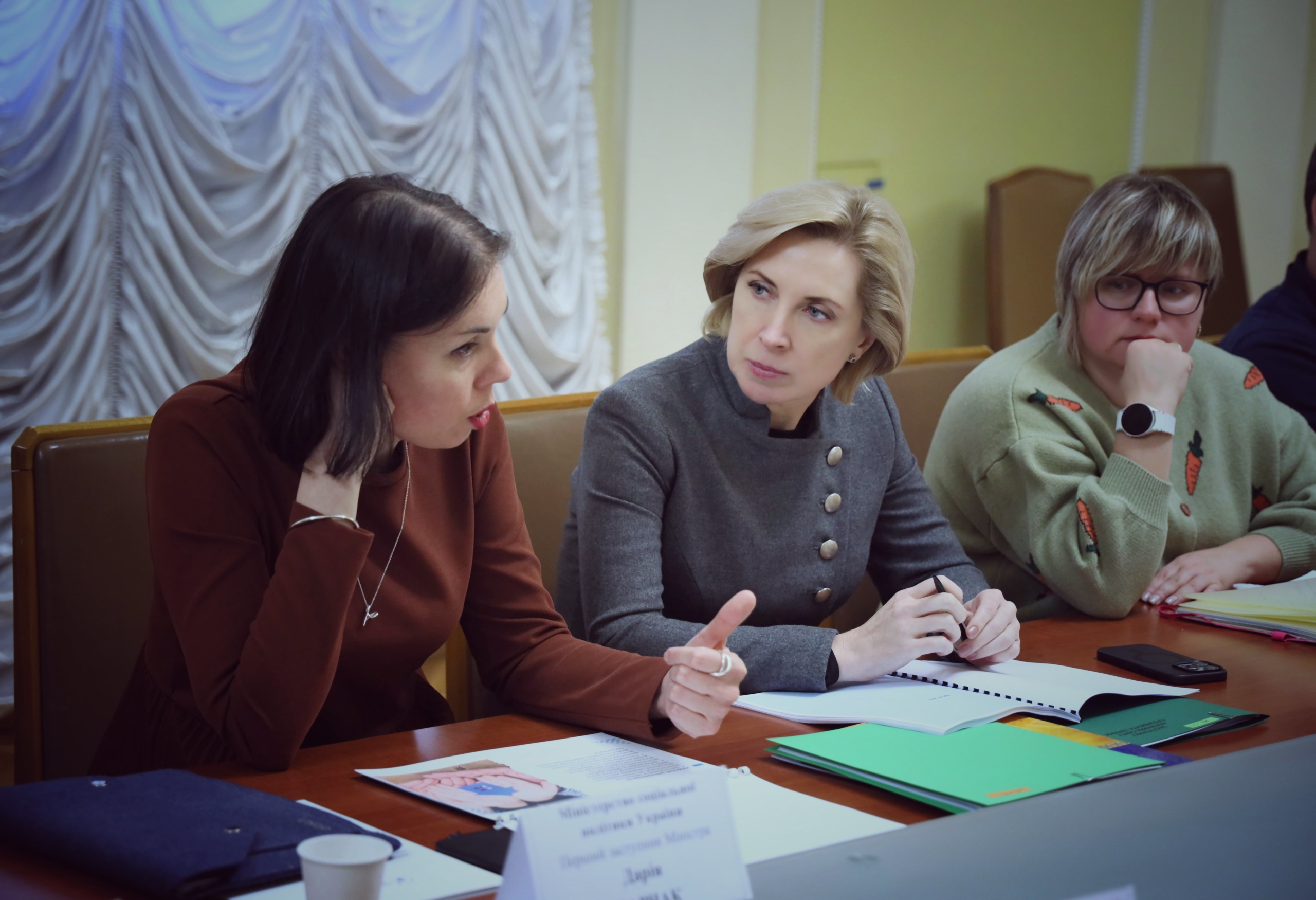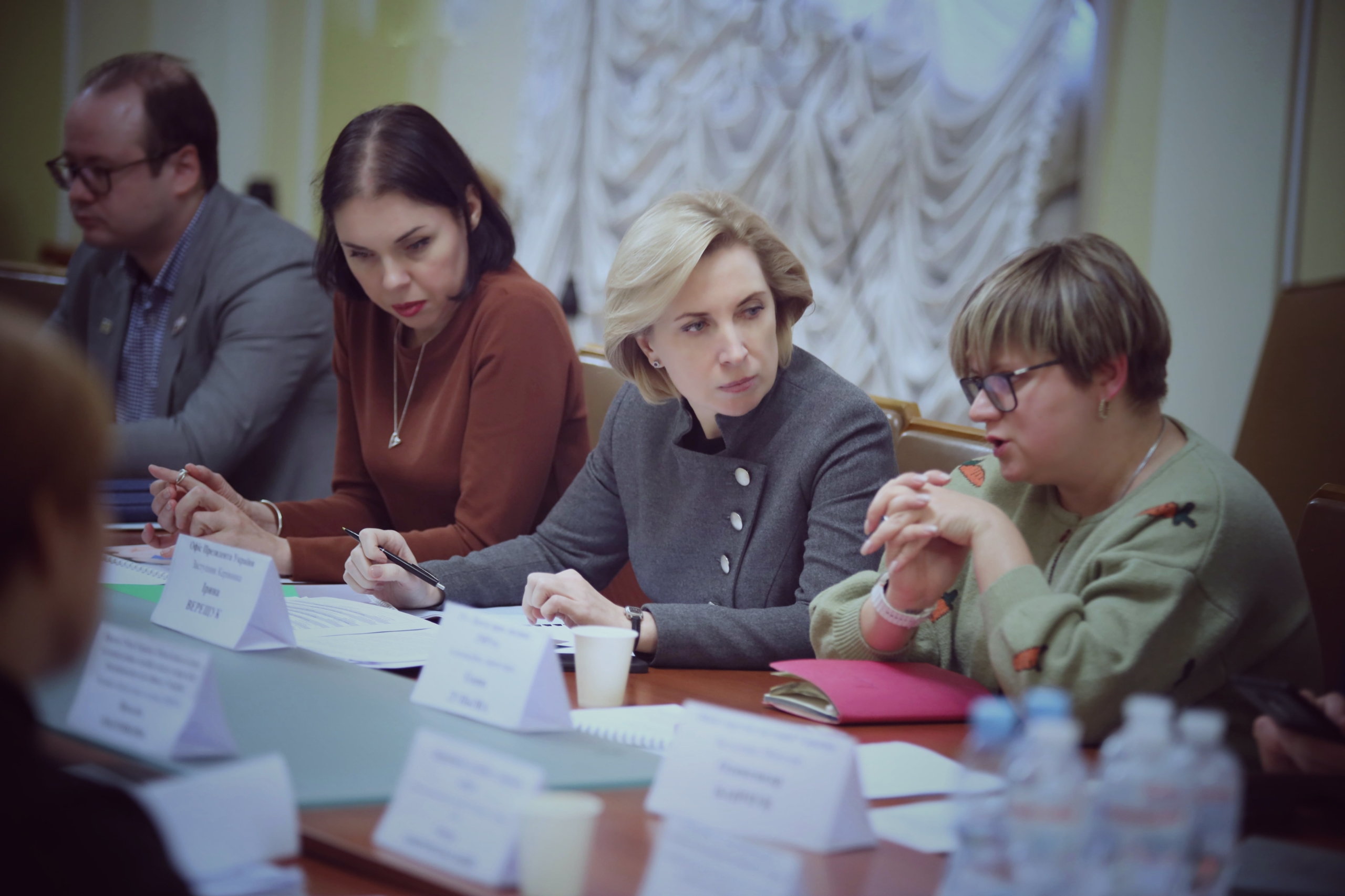The state should develop a comprehensive system of support for victims of war – Alena Lunova at the meeting in the Office of the President
On November 12, 2024, a meeting was held at the Office of the President to develop a state vision of the support system for war victims. The basis for this vision may be the Concept for Improving the National System of Legal Protection and Support for Victims of Armed Aggression against Ukraine, which was developed by a working group based at the Ombudsman’s Office with the involvement of public sector experts and NGOs. The concept was presented in the summer and contains an analysis of the problems that currently exist in the field of support for victims and proposals for improving the situation.
 Photo: Office of the President of Ukraine
Photo: Office of the President of UkraineDuring this meeting, Deputy Head of the Office of the President of Ukraine Iryna Vereshchuk said that the state should develop a comprehensive vision of support for various categories of people affected by Russian aggression and assured that the Concept for the Protection of the Rights of Persons Affected by the Armed Aggression of the RF against Ukraine would be adopted by the end of this year.
Advocacy Director of the Human Rights Centre ZMINA, Alena Lunova, who also attended the meeting, noted that the Concept was primarily developed to improve the system of support for victims of armed aggression against Ukraine.
“If we talk about the key problem that we need to solve, it is a very serious lack of coherence and overall inconsistency in approaches to supporting victims. And even the procedures for determining who belongs to these categories are different,” emphasised Alena Lunova.
As of today, at the level of national legislation of Ukraine, since 2014, the categories of persons who suffered harm as a result of the armed aggression against Ukraine have been gradually defined. These are, in particular: (a) persons deprived of their personal liberty as a result of the armed aggression against Ukraine and their family members; (b) persons who went missing under special circumstances and their family members; (c) persons who became persons with disabilities as a result of injuries or other health damage caused by explosives, ammunition and military weapons; (d) children who suffered as a result of hostilities and armed conflicts; (e) internally displaced persons; (f) persons whose residential buildings (apartments) were destroyed as a result of a military-related emergency caused by the armed aggression of the Russian Federation; (g) persons affected by the explosion of the Kakhovka hydroelectric power station dam.
 Photo: Office of the President of Ukraine
Photo: Office of the President of UkraineLunova adds that, unfortunately, there is currently no systematic support at the state level for those citizens who have suffered the most from Russian war crimes.
“At least seven categories of persons have been identified who are considered to be war-affected and are supported by the state in one way or another. At the same time, there is no systematic support for those who have suffered the most, whose lives and health have been damaged by war crimes and gross human rights violations. And our task is to ensure that these most vulnerable categories are supported,” said Alena Lunova.
On July 5, 2024, for the first time in 10 years of war, Ukraine presented the Concept for Improving the National System of Legal Protection and Support for Victims of Armed Aggression against Ukraine, which was developed by a working group based on the Ombudsman’s Office. Lunova took an active part in the development of the document, which aims to improve the system of protection of affected citizens.
Representatives of Human Rights Centre ZMINA also joined this presentation on the concept of support for victims of Russian aggression. In particular, Alena Lunova was responsible for compiling the proposals and preparing the relevant text for the Concept.
If you have found a spelling error, please, notify us by selecting that text and pressing Ctrl+Enter.















